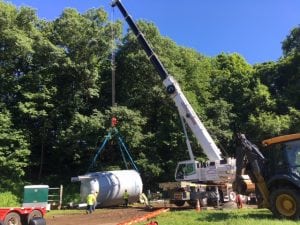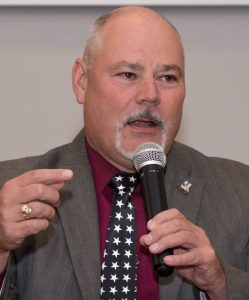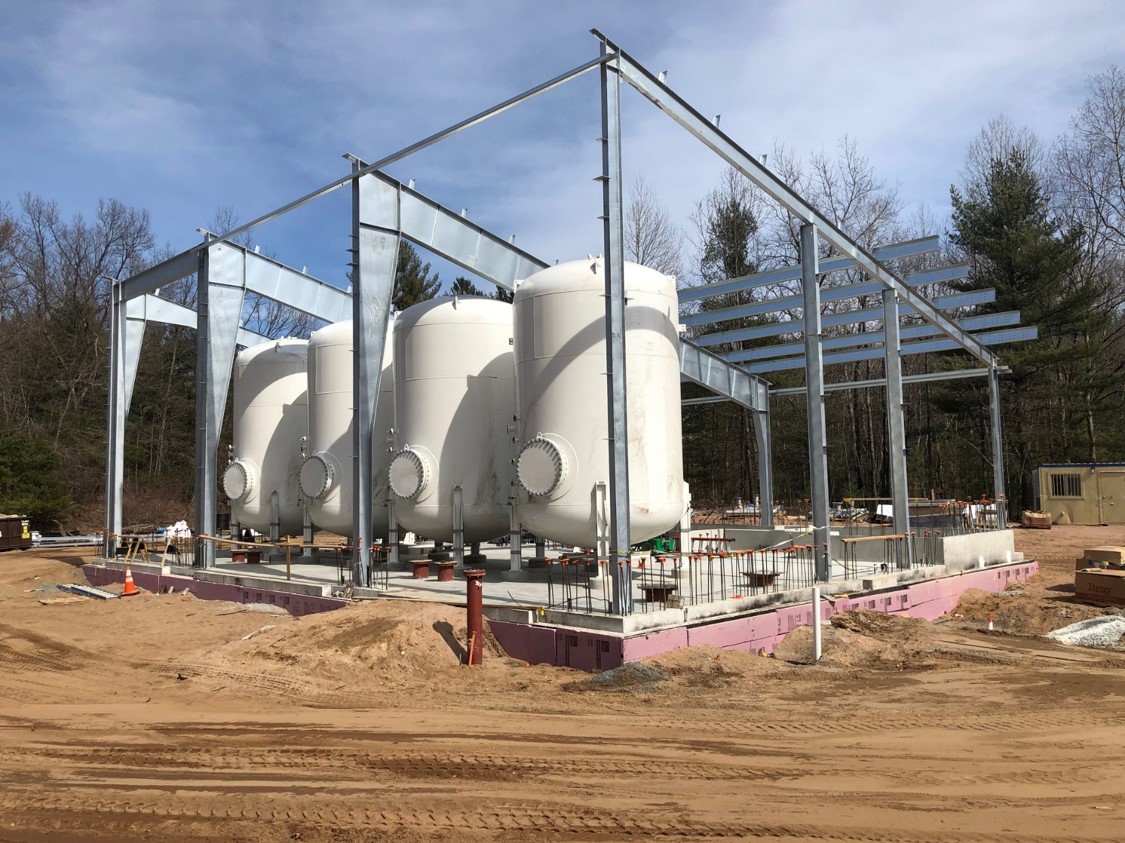
A crane offloads a granular activated carbon filter for Well 3 in July 2018. (File Photo)
WESTFIELD – City water, specifically ridding city water of contaminants, has been the top priority for residents and officials alike for the past several years. The topic has caused a divide within the community, however, both sides have continuously fought to keep the issue on the radar of state and federal officials.
The family of chemicals known as per- and polyfluoroalkyl substances, or PFAS, have been detected in public water supplies in Westfield as well as in Ayer, Barnstable, Harvard, Hudson, Mashpee, Middleton and Shirley according to the Department of Environmental Protection, stated the State House News Service.
Last Friday Gov. Charlie Baker made it clear he has heard Westfield – and other communities dealing with similar concerns – when he proposed spending $8.4 million to test drinking water for PFAS contamination, and another $20 million to support PFAS remediation projects.

Mayor Brian P. Sullivan
Westfield Mayor Brian P. Sullivan said this weekend that he is hopeful the city will receive funds. The city has spent millions on filtration in four wells on the north side of the city where the Barnes Air National Guard’s 104th Fighter Wing is located. Firefighting foam used at the base was identified as the source of contamination.
“The city is currently reaching out to our reps in Boston to get clarification on how this money will be distributed,” Sullivan said. “We are hoping Westfield can be included in the funding to help us continue to manage what we are dealing with when it comes to delivering drinking water to our northside residents.”
Mass DEP Deputy Commissioner Stephanie Cooper said the places where PFAS drinking water contamination is found are often near military installations. Cooper told State House News that the department has been “really actively and proactively working on” combating PFAS contamination. “We hope it will even increase our proactive response to this emerging contaminant in the commonwealth and continue to protect public drinking water.”
The $8.4 million will come from a MassDEP grant program and will be available for testing both public and private drinking water systems, including wells.
The $20 million for low- or no-interest loans for PFAS projects is part of $55 million the Baker administration is proposing for the Clean Water Trust, along with $35 million to fund water infrastructure projects.
Others in state government are also taking steps to address PFAS contamination.
The State House News Service reports that a bill establishing an “interagency PFAS task force” (H 3851) earned the endorsement of the Environment, Natural Resources and Agriculture Committee on Aug. 26 and is now before the House Ways and Means Committee. Labeling PFAS contamination an “emerging crisis,” the bill carries a preamble specifying that, if it passes, it will take effect as soon as it is signed into law.
Attorney General Maura Healey, along with 22 attorneys general, asked Congress to pass legislation to assist states in addressing threats caused by PFAS.
“These toxic chemicals are putting the health of our firefighters, our military personnel, and our families in Massachusetts and across the country at serious risk,” Healey said in a July 30 statement. “We need Congress to act immediately to protect public health and help our cities and towns ensure our residents are protected from PFAS exposure and have safe drinking water.”
Hope E. Tremblay can be reached at [email protected].


